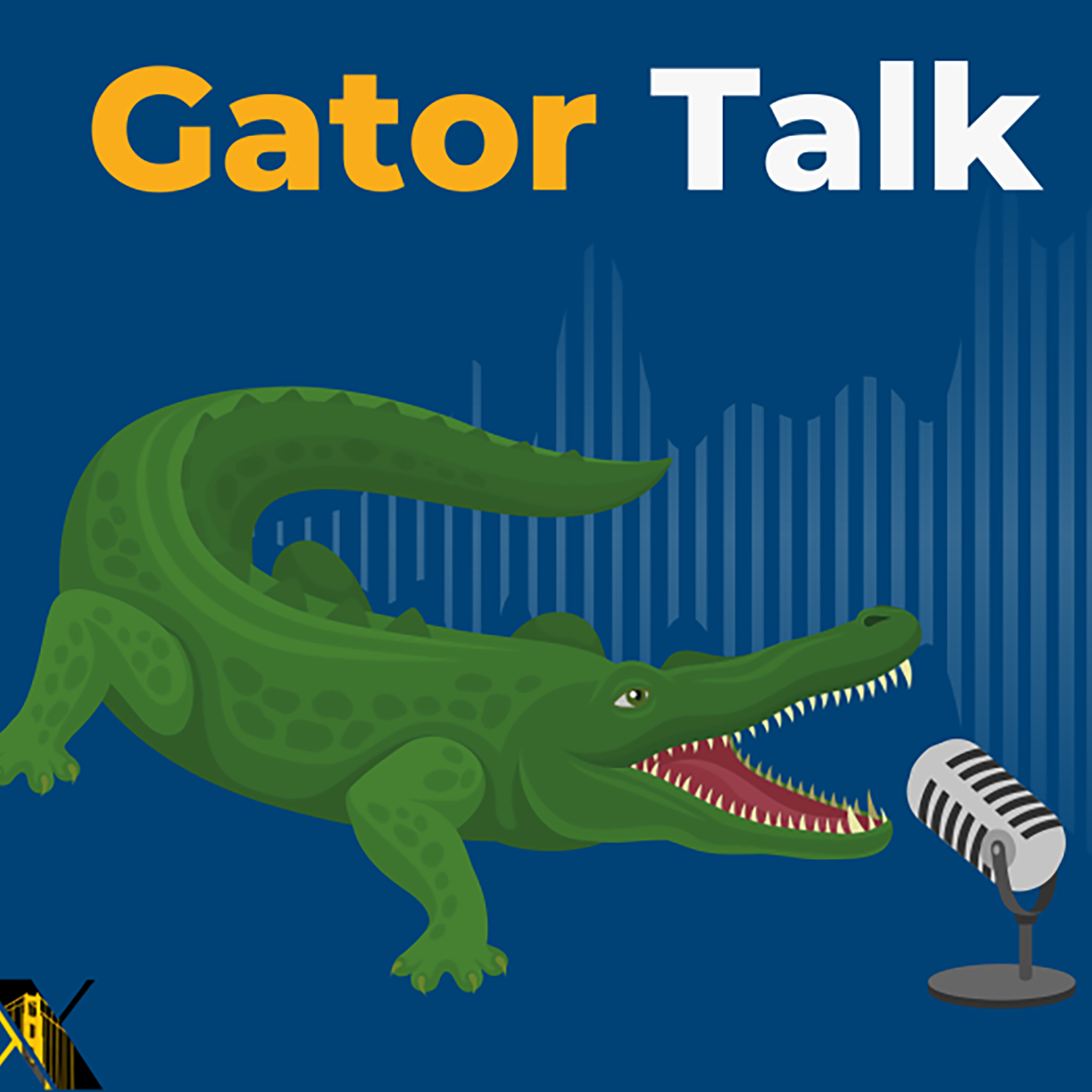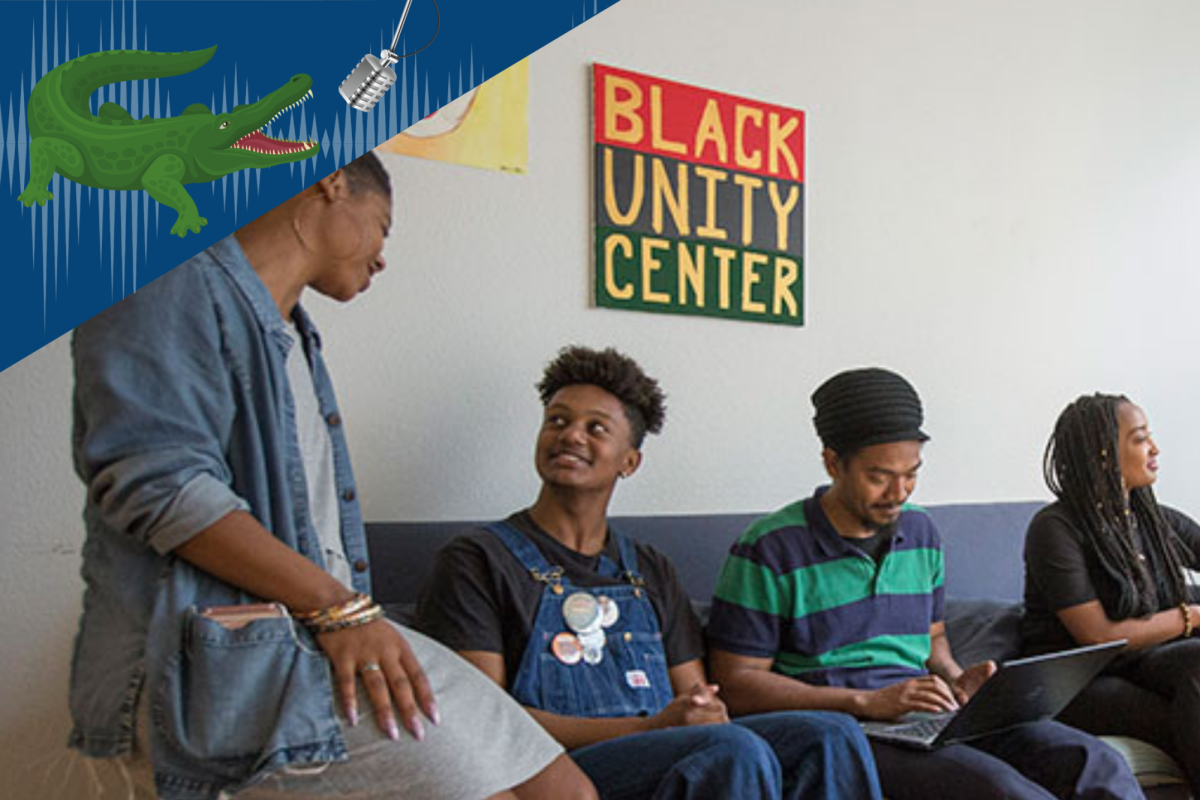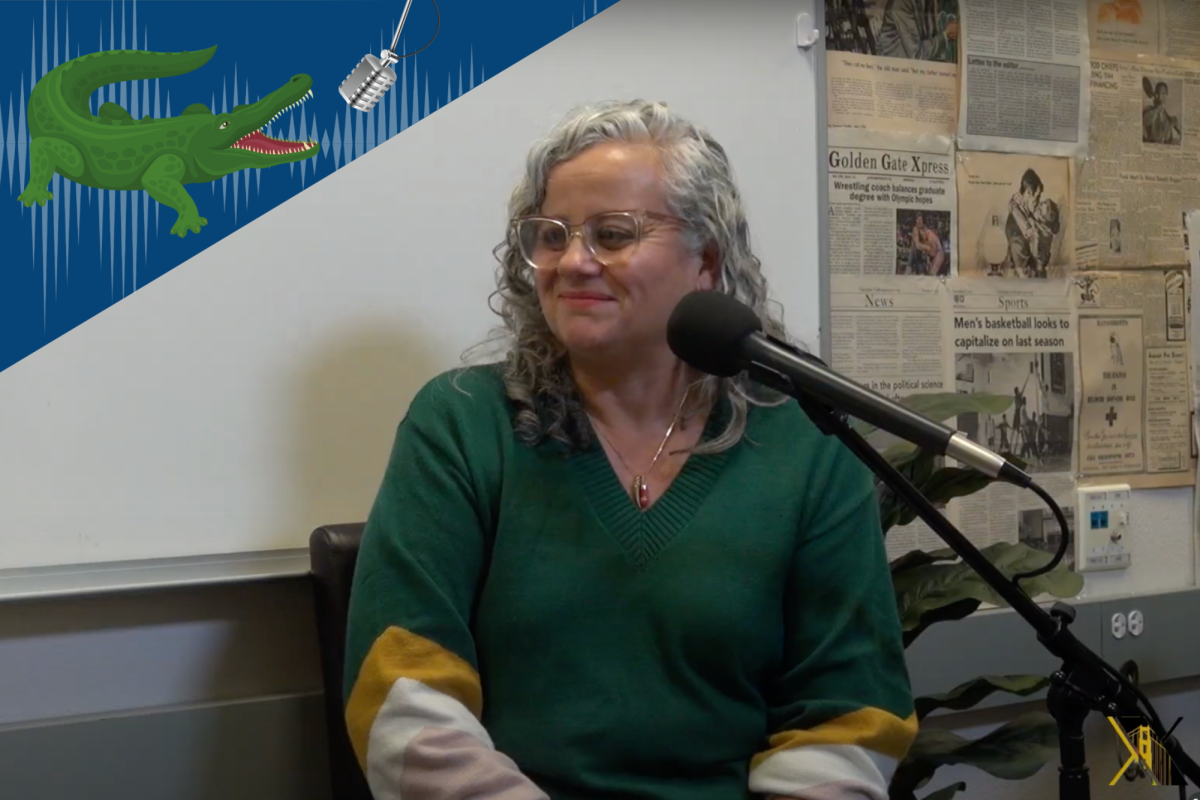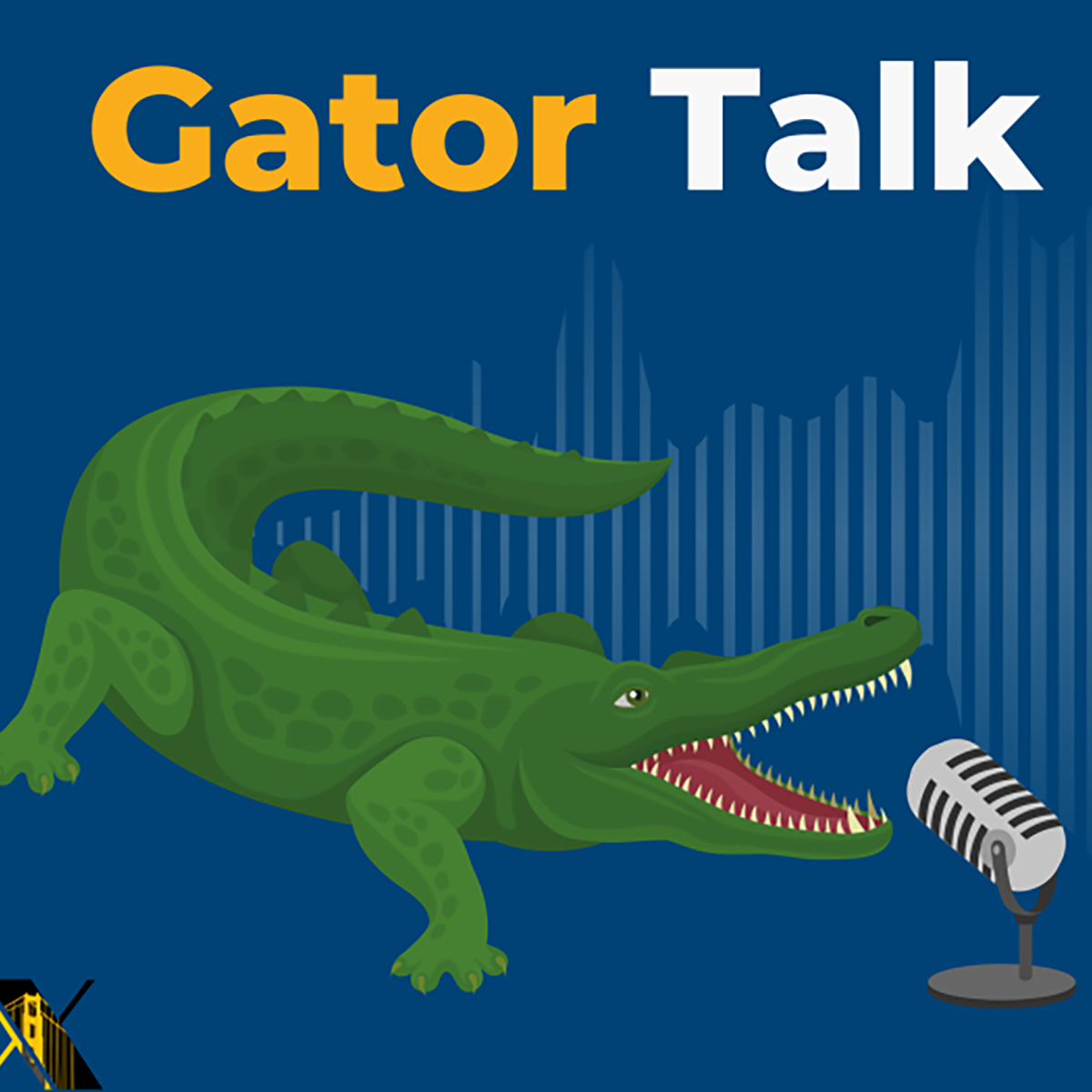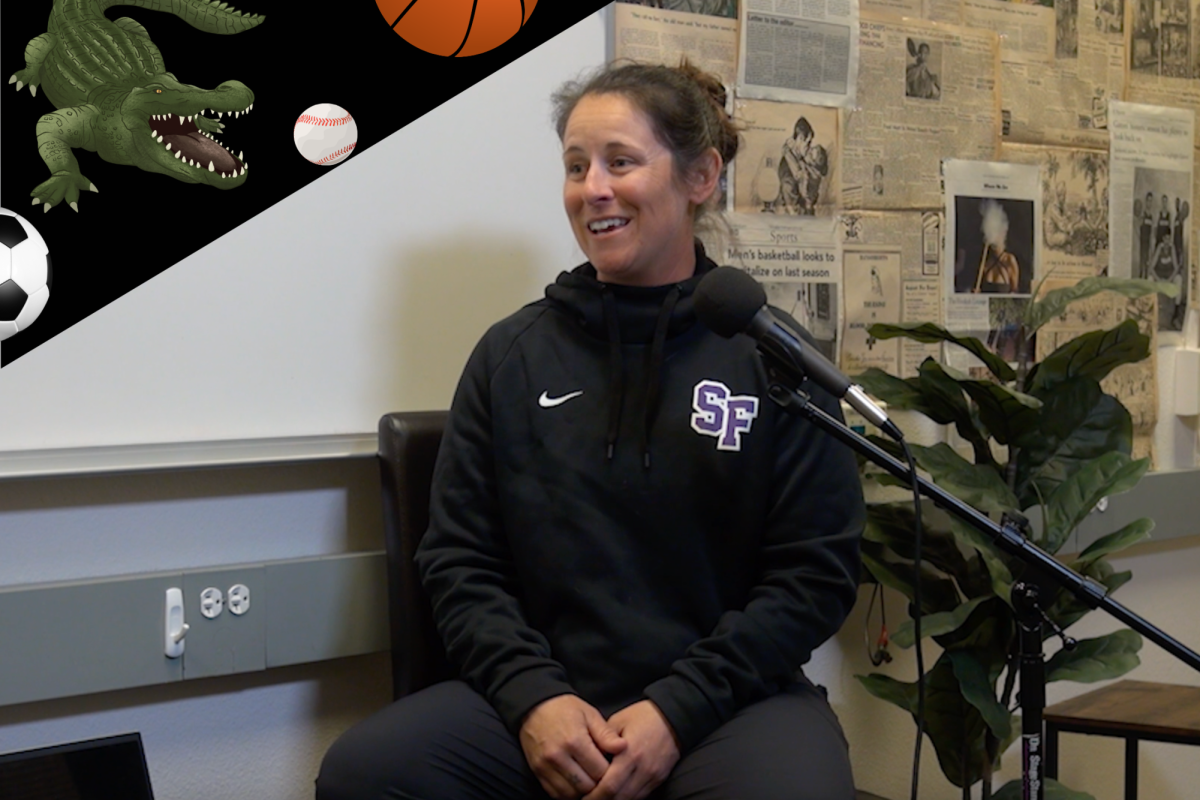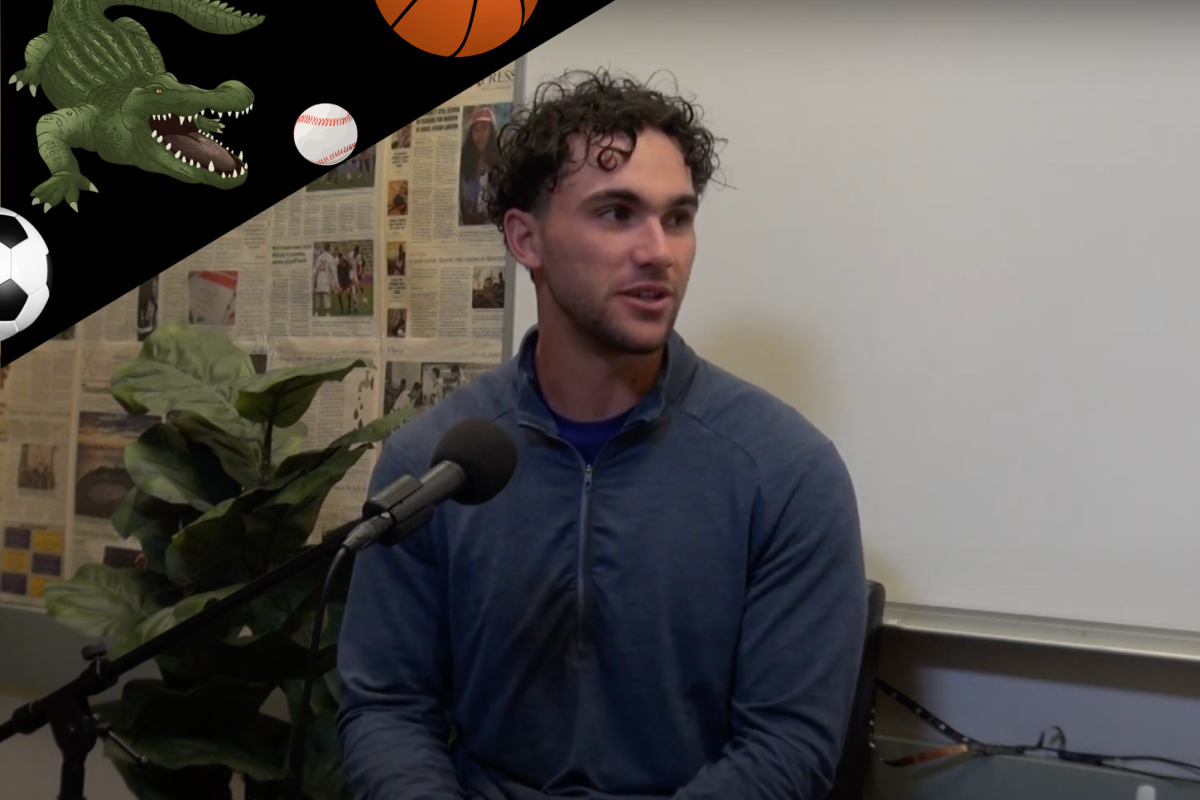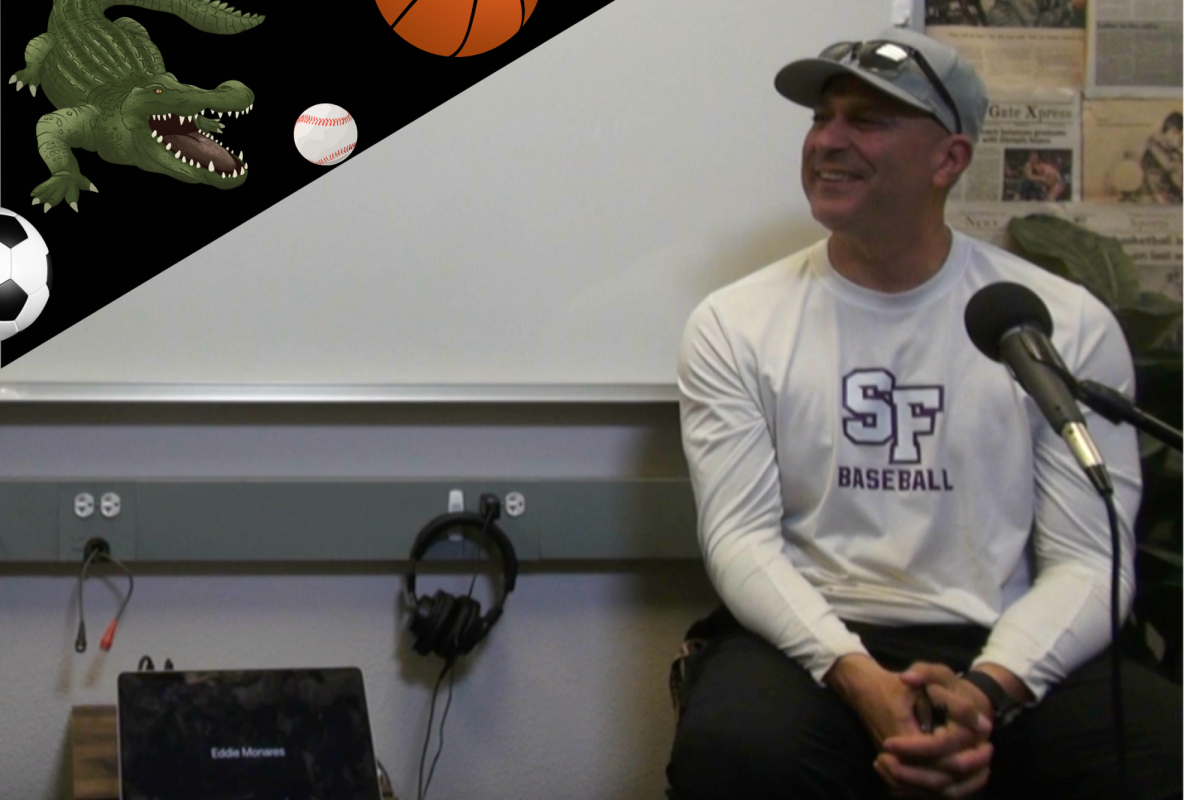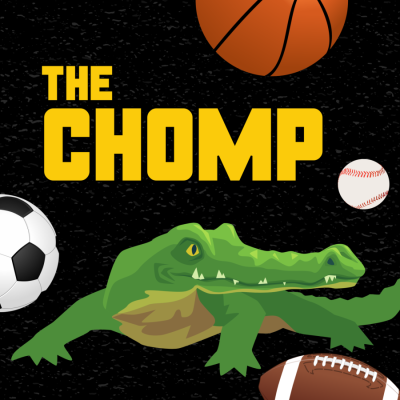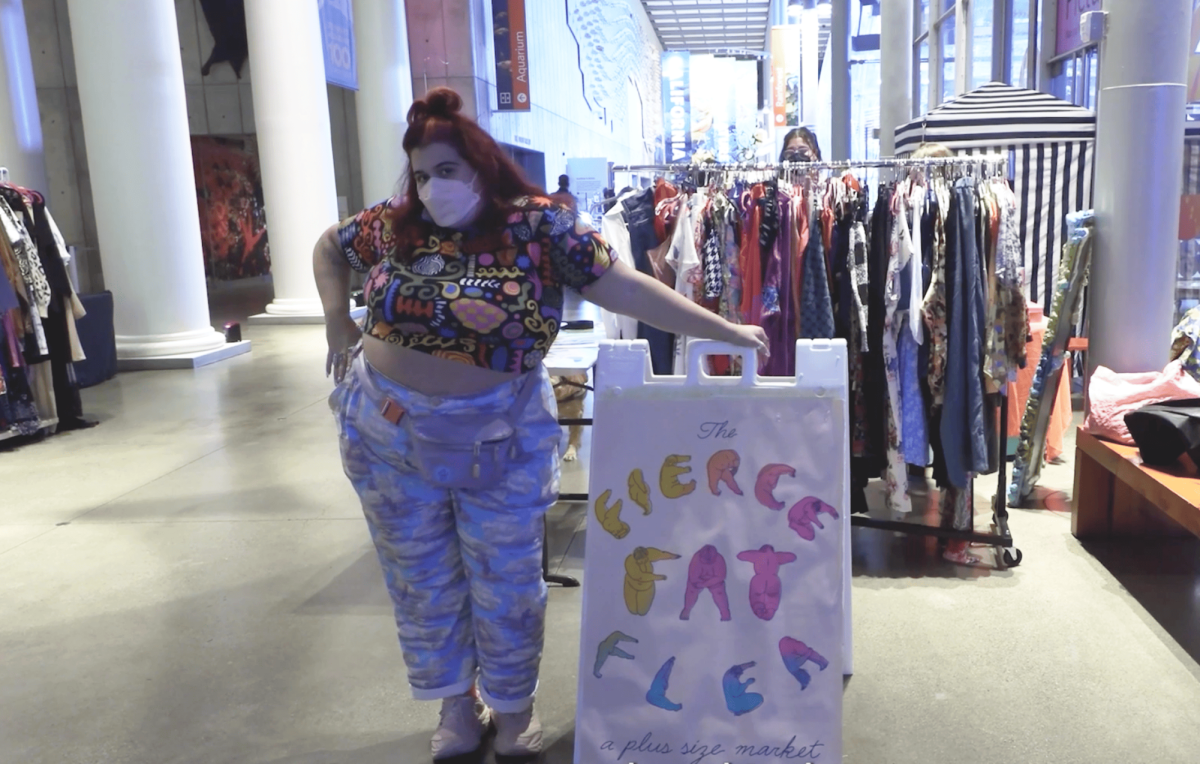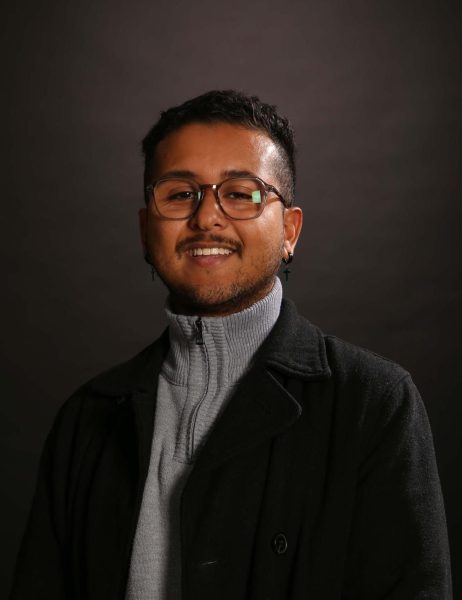Welcome to Gator Talk, the Xpress podcast that brings city perspectives to local, regional and national news.
In today’s podcast episode, A&E Editor from Golden Gate Xpress, D’Angelo Hernandez and David Ye, Copy Editor for Xpress Magazine and the Latinx Film Club talk about why they are thankful for “Everything, Everywhere, All At Once”.
Intro
D’Angelo Hernandez: Hello and welcome to another Gator Talk podcast. This one we’ll be talking about a movie we are grateful for. Today I am joined by David and Tanya; why don’t you guys go ahead and introduce yourselves?
David Ye: I’m David Ye. I am the copy editor for Xpress Magazine. I’m a journalism major and a political science minor. Happy to be here.
Tanya Ochoa: I’m Tanya Ochoa and I am the social media marketing person for the [Latinx] Film Club. And I’m also a creative writing student here at SF State.
Interview
D’Angelo Hernandez: My name is D’Angelo Hernandez. I am the arts and entertainment editor for Golden Gate Xpress. So today we have Tanya with us to share one movie she is thankful for.
Tanya Ochoa: I think my pick would be “Everything Everywhere All at Once.” When that movie came out, I was going through some family stuff, and my best friend was like, “Hey, I heard this movie is supposed to be really good. Like, you should come see it.” And I had no idea what the movie was gonna be about. I just went in, like, without having seen the trailer, without, like, knowing anything about this movie, and usually, I only go to the movies if I know what movie I’m gonna go see. I don’t like to, like, surprise myself really.
D’Angelo Hernandez: You don’t like going in blind?
Tanya Ochoa: No, I like knowing what I’m gonna go watch.
David Ye: I agree with that.
Tanya Ochoa: I gotta prepare myself for what I’m gonna watch, you know. My friend was like, “No, you’re gonna like it, you’re gonna like it.” And I was like, “Okay, well, like if I don’t like it, you know”—
D’Angelo Hernandez: This is on you. This is on you if I don’t like this movie.
Tanya Ochoa: Exactly. And so, like, I went in and I watched. I cried so much. It, like, it really resonated with the mother-daughter bond, you know, like, like the daughter feeling like her mother didn’t love her. She was just constantly judging her and like, you know, always making her feel kind of like, less than or inferior, like not up to par.
D’Angelo Hernandez, David Ye (in unison): Yeah.
Tanya Ochoa: Yeah, like, like, not what she wanted her to be. Yeah, I cried, because I’m just like, I know that I’ll never get that with my own mother. You know, I know. that mother apologized to her for everything that she did and stuff like that. And I cried because, like, I’m never gonna get that. It made me really thankful that like, you know, we’re able to talk about these things, especially in such a big movie. I’m so glad that it won, like, the Oscar that it did. And I don’t remember which one it was, but like, it deserves all the accolades, like everything. Like, I love that movie so much. It really speaks to me.
D’Angelo Hernandez: I do have to say — that movie came out the same year as “The Batman,” right?
Tanya Ochoa: I believe so.
David Ye: 2018, right. I’m thinking?
Tanya Ochoa: “The Batman” came out 2022.
D’Angelo Hernandez: Yeah. And then it was — “Everything Everywhere All at Once” came out, like, December 2021.
David Ye: I’m tripping, I think.
D’Angelo Hernandez: Either way, what I was gonna — my point I was gonna make was that I think that movie even tops “The Batman” for me, and I’m a huge Batman geek. Like I mentioned earlier, when I first watched “Everything Everywhere All at Once,” I also went in blind. I had no idea what I was getting into. My friend just said it’s a lady who goes and does her taxes.
I was like, “Okay, let’s go watch it.”
I was laughing. I was crying. I didn’t see the last 30 minutes of the movie because my eyes were just bawling. I really felt the headspace that Jobu Tupaki was coming from. The movie has this clash between nihilism and absurdism, and just seeing how the characters begin to understand both of these concepts, but without having — like, realizing it, that these are these concepts, just seeing the relationship between the mother and the daughter and seeing the pain that Jobu Tupaki had because of this relationship with her mother and the stress that it caused her to drive her to what she was about to do. It was a very, very emotional movie for me.
Tanya Ochoa: And like, it has everything that I like in a movie, which is like fighting. I love martial arts, I’m a huge martial arts fan. So like, just seeing all the fight scenes — the choreography was amazing. I was blown away by the choreography and then seeing one of my favorite martial artists. I follow him on Instagram. I forgot his name, but he did the buttplug scene.
D’Angelo Hernandez: I love that scene!
Tanya Ochoa: Like, it was — it was comedic. It was sentimental. It was everything.
D’Angelo Hernandez: It was introspective on the human condition.
Tanya Ochoa: Exactly, because it was so multi-dimensional. And that’s exactly what humans are.
D’Angelo Hernandez: The emotional pull, the story, the narrative.
Tanya Ochoa: The quality. it just was like — you don’t need as big of a budget in order to make something worthwhile, you know, like something that, like, touches everybody.
D’Angelo Hernandez: Would you guys categorize “Everything Everywhere All at Once” as a character study?
David Ye: Ooh, well, I’ll say yes. But also, there’s a bit of a caveat in the, in the way that it’s like, obviously, you can apply the themes of like, motherhood and family connections to like, everybody. But for me, especially I think, seeing “Everything Everywhere All at Once” was like the moment I realized — or came to the conclusion, I guess — that representation matters in a way, because I didn’t really grow up with any media with Asian Americans in it. And so seeing that relationship displayed so authentically for the first time, like obviously, you know, like I said, you can apply it to every other ethnic group and it will still be probably true, but seeing sort of that like, universal desire for a better life, but in the way that I’ve lived it, is so emotional and touching in the way that, you know, like, I cried too. I’m not going to front, but it did mean a lot. That’s all I can say.
D’Angelo Hernandez: I’ve actually been trying to sit down with my mom and watch it myself. And I just haven’t found the time. Has that been something you’ve wanted to do?
Tanya Ochoa: To watch with my mom?
D’Angelo Hernandez: Yeah.
Tanya Ochoa: Well, my mom doesn’t speak — I mean, I don’t know if there’s a Spanish dub. My mom doesn’t speak any English. So I don’t know if, like, she’d, like, be willing to sit down and especially watching a movie that long because my mom is very impatient. And like, I don’t remember the last time my mom actually actively wanted to sit down and watch a movie.
My mom’s just always like, on her phone watching, like, TV shows on Facebook or something. Right? Like, she watches “El Chavo del Ocho” or like “La Rosa de Guadalupe,” you know? So like, you know, she’ll watch TV shows, like something that’s, like, maybe like 30 minutes or less, but she’s not a movie person. So I think especially because the movie’s, like, pretty long, I think, like two hours?
D’Angelo Hernandez: I think it’s like two and a half.
Tanya Ochoa, David Ye (in unison): Yeah.
Tanya Ochoa: So it’s a pretty long movie. So I don’t think my mom would actually want to sit down and watch a movie with it, which is really funny, because you know, like, I like making movies, right? But like, yeah, she’s like, the complete opposite. She doesn’t really care for it, but she’s more of a TV show person. But I think if I were to, like, ask her to sit down and watch this movie with me. My mom has actually been going to therapy, so maybe.
David Ye: Oh!
Tanya Ochoa: Yeah, it’s really — it’s really odd. Like, for, like — she’s 50 something and so she started going to therapy because of depression because she was, like, bullied in her previous workplace. It’s really helped her and I can actually have a conversation with her, which is really interesting.
D’Angelo Hernandez: That’s huge.
Tanya Ochoa: Yeah. That is really big. So I think maybe, like, now she would be more, like —
D’Angelo Hernandez: Receptive.
Tanya Ochoa: — open to watching a movie with me if I asked her to, but I still don’t think, like, she’d want to. Because she’s like, “Oh, like, like, all this time that we are watching this movie, we could be doing something else.”
D’Angelo Hernandez: That’s literally my mother.
Tanya Ochoa, David Ye (in unison): Yeah.
D’Angelo Hernandez: That’s literally exactly what my mom is. She’s like, “I have a thousand other things to do in this household. I don’t have time to sit down and watch a movie with you.”
Tanya Ochoa: If you can sit down and relax, you can clean.
David Ye: They’re always like that.
D’Angelo Hernandez: Yeah, there’s — there’s something to clean right now.
Tanya Ochoa: That’s why I felt so guilty for so long. Like, whenever I would take a breather, whenever I would want to relax, she’s just like, “Oh, you’re sitting down doing nothing? You can help me clean.”
D’Angelo Hernandez: No, my mom’s the same way — although, I have brought it up to her. And I’m like, “Hey, there’s this movie. I don’t really want to tell you what it’s about. I think we just should just sit down and watch it.”
And I’ve talked it up several times in the household, at the dinner table and whatnot. She seemed pretty interested. I’ve actually gotten her to say that, “yeah, we’ll sit down and watch it,” but we just haven’t found the time.
So I’ve had similar thoughts to Jobu Tupaki, and I’ve shared that with my parents. That was a tough conversation, as you imagine. It’s hard to, like, verbalize it. So I just want to like, show them this movie, and be like, “Yeah, that’s how it is.” I think that would be a better articulation than the way that I could say it. Because once I start trying to explain myself, I get too rambly and too yappy and it’s just — I don’t know how to articulate myself.
David Ye: I’m in the same boat. Like, I would show my mom that movie. in addition to just, like, being too rambly, there’s also a language barrier between me and her, even though we—
D’Angelo Hernandez: Yeah.
David Ye: We grew up together in China, so it was like, “Okay, I can’t really tell you what the movie is about. You just gotta watch it.” And if you’re not gonna watch it, then well, I’m not gonna feel too good. And I’m not gonna ask you to watch any other movies, you know, but it is weird, because the few times we have sat down and watched a movie together, I have subs turned on, you know, but for the most part, like, me and my parents, like, they understand what’s happening mostly through visuals, which is okay, and then we’ll talk about it but you know, that’s where the language barrier comes into play.
“Everything Everywhere All At Once” has Mandarin-speaking characters, right? So—
D’Angelo Hernandez: Yeah.
David Ye: That would help a little bit. But at the same time, there is an emotional crux that I find Chinese-American families don’t really acknowledge. We’re just like, work, work, work all the time and school, school, school. There’s not really the time or the hunger for that emotional acknowledgment, you know, so yeah, so I gotta deal with it, so I’ll watch it on my own. And I’ll watch it with my sister sometimes. She’s 14, she’s doing good. I’m filling that American hole that my parents wouldn’t normally fill. So we’re in a decent spot right now. But I would like to show it to them at some point. Yeah.
Tanya Ochoa: I think that’s the thing, like, with immigrant families when you’re constantly in survival mode, it’s hard to think about your emotional intelligence, think about how you’re feeling. Because when you’re constantly working, trying to make money or trying to provide for your children or for just your family in general, it’s really hard to think about how you’re feeling and like, how to express that too. Because you’re not really thinking about how you’re making someone feel, you’re not really thinking about am I, like, being emotionally supportive to my children or to my family? Because you’re just trying to provide for them and like, you’re just so exhausted at the end of the day, because you’ve just been working so hard.
And so all you think about is work, in order to keep a roof over your head, to have food on the table. That’s why I like us as like this generation of immigrant parents, you know, like, we’re first generation, like, we’re going to school, college, getting a college education, we’re more susceptible to — well, we have more like contact to, like, people that are also concerned with mental health, you know, like, we’re talking about it. And I think with movies like this coming out, [it] opens up a space for people to actually open up about it.
David Ye: I think it’s interesting that also in that way, we’re kind of raised to survive. You know, like, as a kid, I don’t remember, like, a single week where I wasn’t helping my parents, like fill out forms.
Tanya Ochoa: Yep.
David Ye: Or like, pay the bills, or whatever, you know, so having sort of that history, I guess we can call it — it’s weird to say like, “I want us to sit down and watch this movie together.” And maybe we can talk about how their dynamic reflects our dynamic. You know, I think it would be nice, but also, like, it’s a very uphill battle.
D’Angelo Hernandez: No, it is a tall ask. And it would be a very tough conversation and something that I was thinking about too, when pitching the movie to my mom, right? But I feel that it’s become more of a recent development: the more societal awareness of mental health. [It] definitely wasn’t something that was talked about in our parents’ generation. It’s not something that we can afford to think about because all we have to do is survive. You don’t have time to worry about your emotions, you just have time to go to work. It sucks because you have us who are on the negative end, receiving all this because of it, and being raised this way. But you know, we’re now having these conversations. So I think it is on us to push our parents to become more open because we’re — I’m gonna go on a limb and guess that we’re all first-generation college students here.
Tanya Ochoa, David Ye: Yep. Yeah.
D’Angelo Hernandez: They didn’t get that same education. They don’t have the same awareness that we do of how important your mental health really is.
David Ye: It’s just like, you’re working — but it feels like, just like, the path is getting longer, you know, like the end goal is just getting farther away from you.
Outro
D’Angelo Hernandez: It is an uphill battle. Thank you guys so much for this podcast episode. Thank you guys for your insights and your bits of wisdom. You guys have anything else to say? Where can we find you guys?
David Ye: You can find me over at Xpressmagazine.org. Our third issue is coming out sometime after Thanksgiving — a week and a couple of days after that — so look out for that.
Tanya Ochoa: You can find me on Instagram. It’s @_nobodieee_. So it’s “at underscore n-o-b-o-d-i-e-e-e underscore.”
D’Angelo Hernandez: Well, thank you guys again for coming in today. I appreciate you guys so much.
David Ye: And we appreciate you.
Tanya Ochoa: Thank you for having me.
D’Angelo Hernandez: You can find me on GGX news outlets our instagram @ggxnews.


